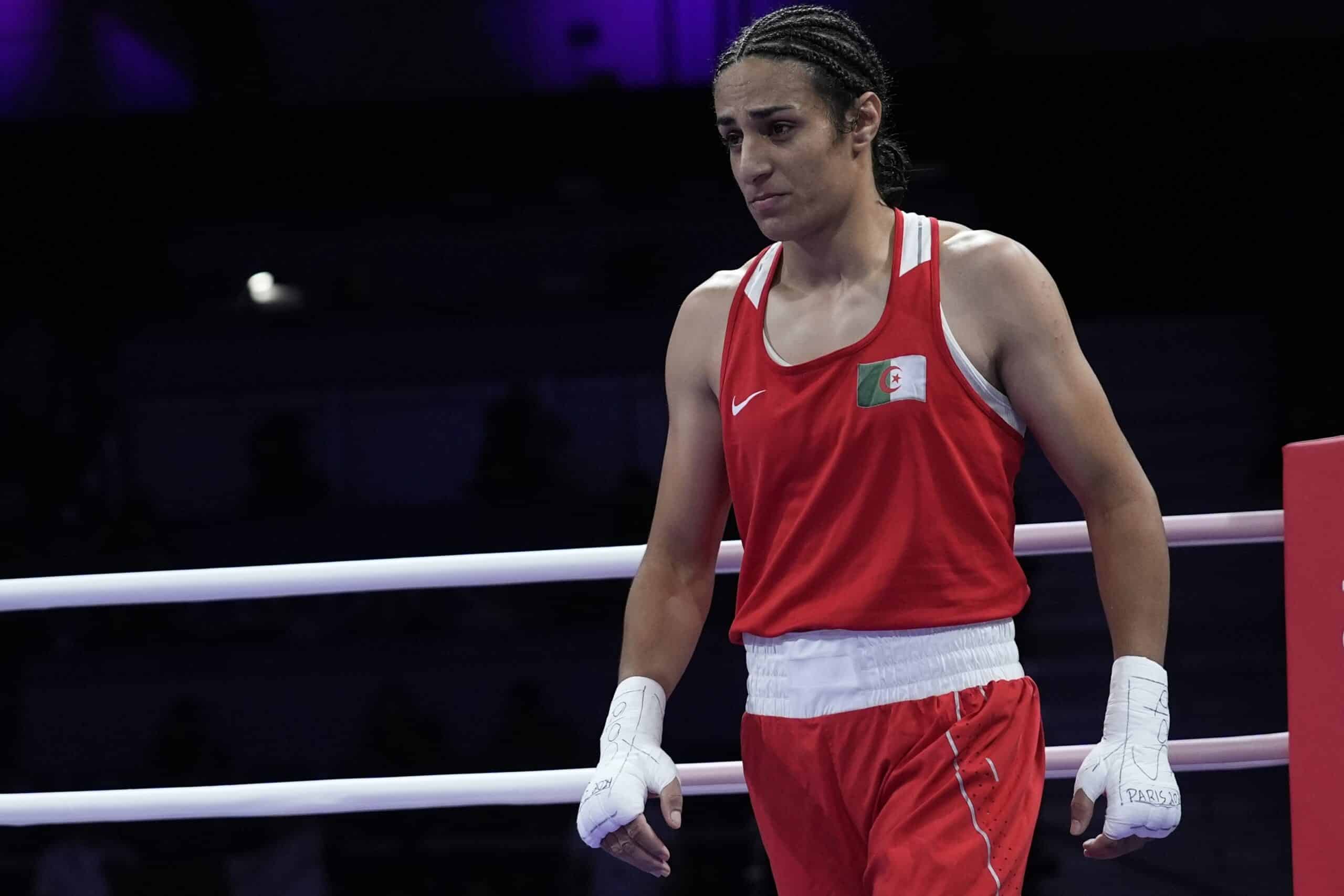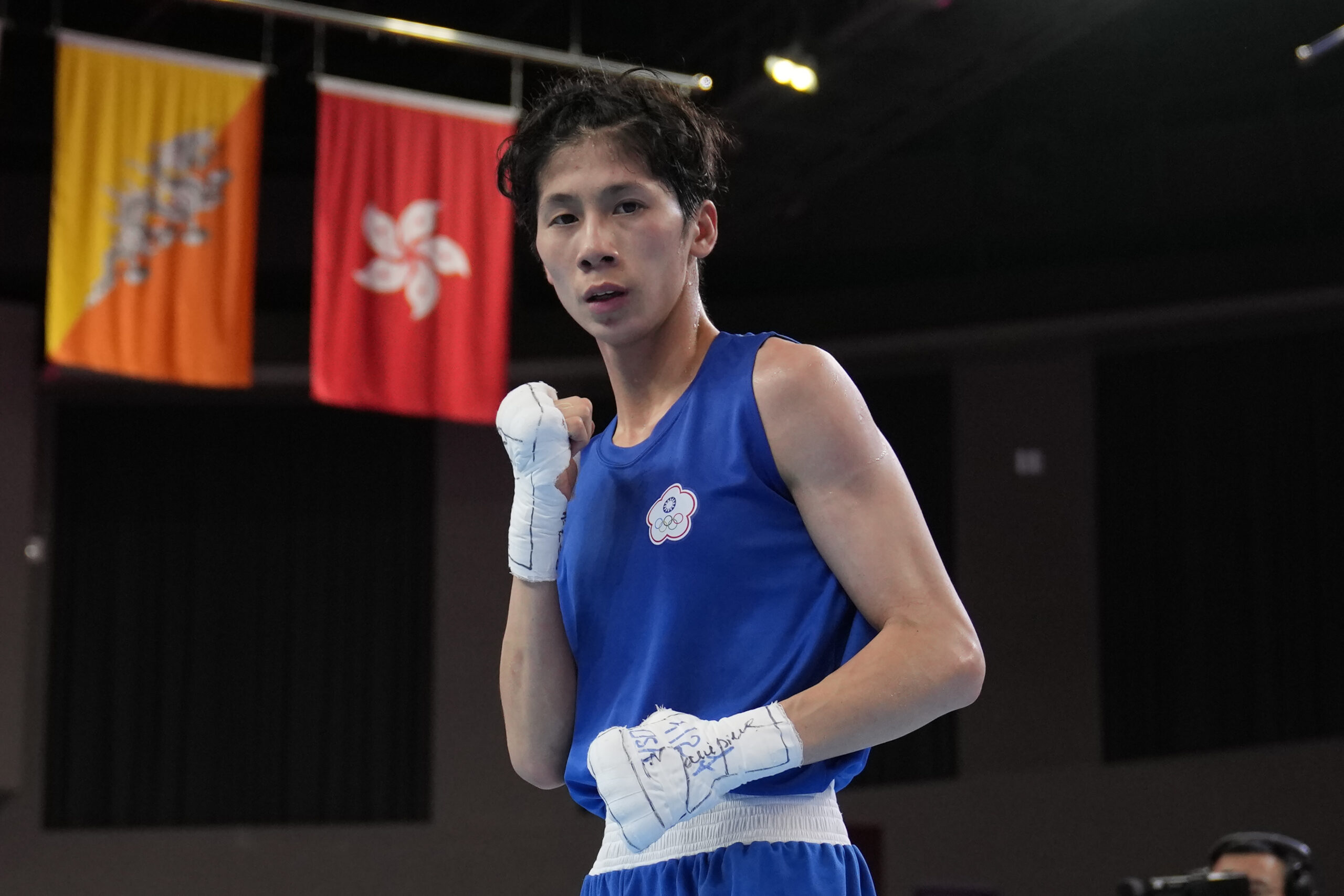
Algeria’s Imane Khelif, reacts after defeating Italy’s Angela Carini in their women’s 66kg preliminary boxing match at the 2024 Summer Olympics, Thursday, Aug. 1, 2024, in Paris, France. (AP Photo/John Locher)
PARIS — Female in their passports, female at the Paris Olympics.
The International Olympic Committee has defended the right of two athletes to compete in women’s boxing despite being judged last year to have failed gender eligibility tests at the world championships.
Lin Yu-ting of Taiwan, who is a two-time world champion, and Imane Khelif of Algeria are both competing at their second Olympics.
“Everyone competing in the women’s category is complying with the competition eligibility rules,” IOC spokesman Mark Adams said Tuesday at the daily news conference by organizers of the Paris Olympics.
READ: IOC backs boxers at Paris Olympics who failed gender tests
“They are women in their passports and it’s stated that this is the case, that they are female,” Adams said.
At the 2023 worlds in New Delhi, both were due to get medals until being disqualified by the International Boxing Association. The IBA has no part in running Olympic boxing in fallout from a years-long dispute with the IOC.
Paris Olympics boxing is being run by officials appointed by the IOC, which said Monday it is using rule books based on the version that applied at the 2016 Rio de Janeiro Olympics.


FILE – Taiwan’s Lin Yu-ting poses after winning against India’s Parveen in the Boxing Women’s 54-57Kg Semifinal bout during the 19th Asian Games in Hangzhou, China, Wednesday, Oct. 4, 2023. (AP Photo/Aijaz Rahi, File)
“They are eligible by the rules of the federation which was set in 2016, and which worked for Tokyo too,” Adams said. “To compete as women, which is what they are. And we fully support that.”
The IOC official said it would be “invidious and unfair” to discuss details of individual athletes.
Lin is top-seeded in the women’s 57-kilogram featherweight class and Khelif is the No. 5 seed in the 66-kilogram welterweight event.
READ: Imane Khelif, boxer in gender test issue, wins first Paris Olympics fight
On Thursday, Khelif won her opening bout when opponent Angela Carini of Italy quit after just 46 seconds. Lin has a first-round bye and will face Uzbekistan’s Sitora Turdibekova in the round-of-16 on Friday.
Lin qualified for Paris by winning the Asian Games title last October and Khelif won an African qualifying tournament last September. Both qualification tournaments were held under the IOC’s authority months after the fighters’ exclusion from the IBA-run worlds.
Khelif was removed from her gold-medal bout in India for having elevated levels of testosterone, the IOC’s athlete database in Paris said. Lin failed “a biochemical test” at the 2023 worlds.
Their presence in Paris drew criticism this week, with former men’s featherweight world champion Barry McGuigan posting on social media “it’s shocking that they were actually allowed to get this far.”
The 28-year-old Lin won her first world title in 2018 and was a youth world champion in 2013, according to an IBA profile. In 2021, Khelif was a quarterfinalist at the Tokyo Olympics, losing to eventual champion Kellie Harrington of Ireland.
“These athletes have competed many times before for many years. They haven’t just suddenly arrived,” Adams said.
Since the Tokyo Olympics, sports bodies including World Aquatics, World Athletics and the International Cycling Union have updated their gender rules. They now ban athletes who went through male puberty from competing in women’s events.
The track body also last year tightened rules on athletes with differences in sex development (DSD). They include two-time Olympic 800-meter champion Caster Semenya, who has not run in that event since 2019.
The IOC gave those governing bodies guidance in 2021 without imposing rules, in what Adams said Tuesday is an “incredibly complex” subject for experts in each Olympic sport to assess.
Follow Inquirer Sports’ special coverage of the Paris Olympics 2024.

